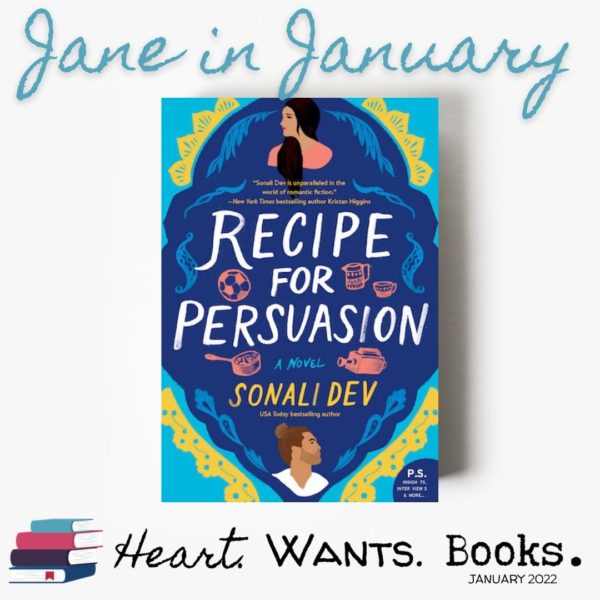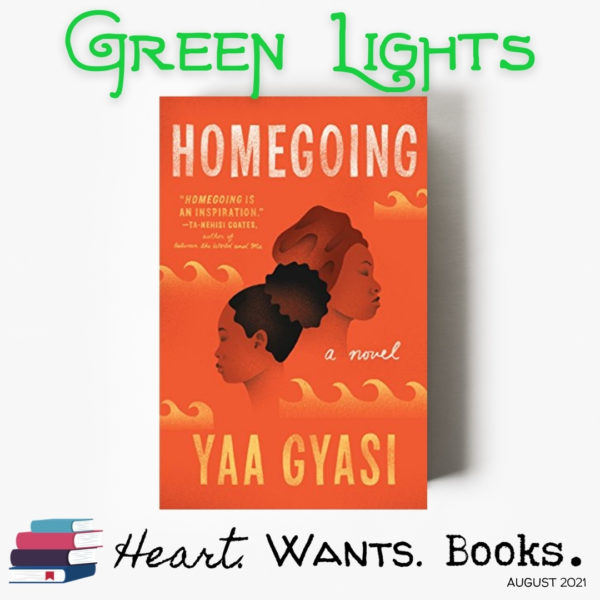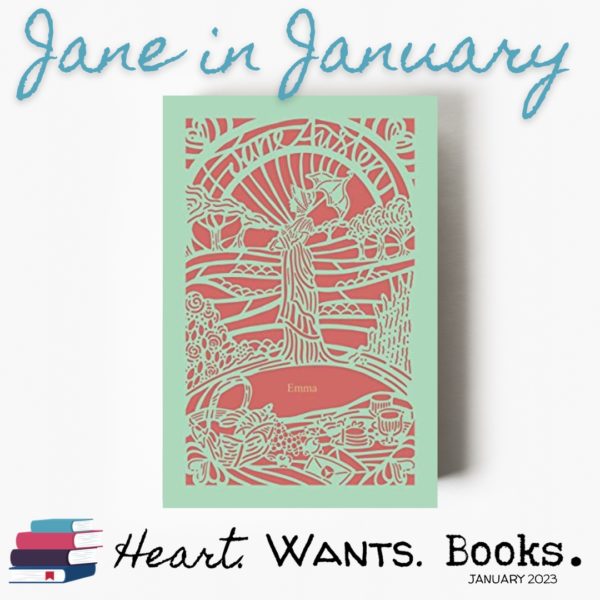Dominicana by Angie Cruz March 25, 2021

The following post includes affiliate links. More details here. As you’re doing your Amazon shopping, we’d be ever so grateful if you’d use our affiliate link to do so as it helps pay the bills around here!
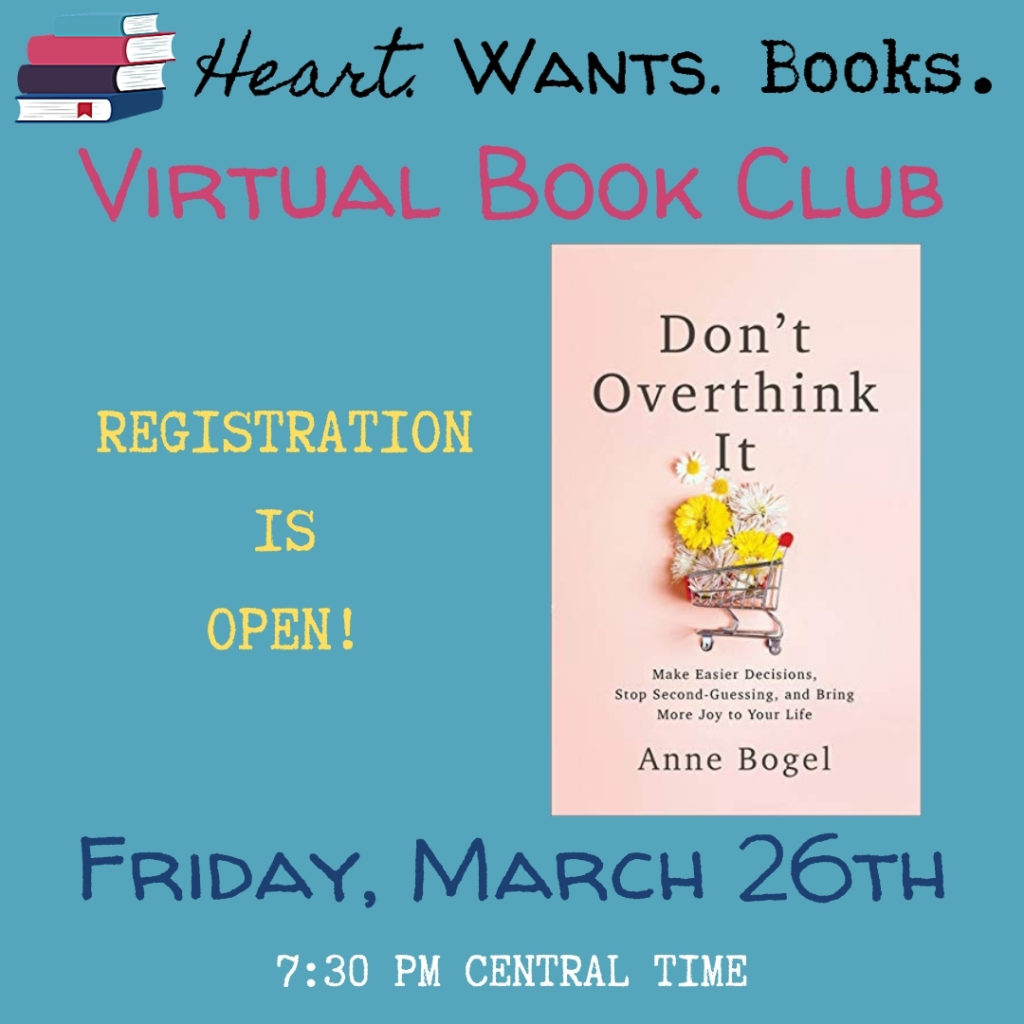
While I can confidently say Anne Bogel doesn’t come out and say this in her latest book (because I’ve finished the Virtual Book Club book before book club for the first time since October), but I feel like she’d support it for a variety of reasons: DON’T OVERTHINK BOOK CLUB! JUST SHOW UP! Yes, that means you dear readers, especially if we are Goodreads friends and you’ve recently read or are reading the book! Didn’t finish, or even open Don’t Overthink It: Make Easier Decisions, Stop Second-Guessing, and Bring More Joy To Your Life? No big deal, really! Sign up and join us tomorrow, Friday, March 26th at 7:30 p.m. CST for conversation and discussion about the book, the general topic of overthinking. We’ll probably talk Modern Mrs. Darcy too, so read a post or two if you feel like you need to read something – and there’s a podcast for you audiobook types too!
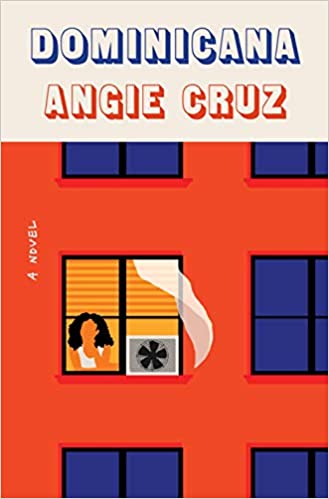
Dear readers, for women’s history month, we purposefully selected titles by authors who come from a wide variety of backgrounds. We wanted to learn about the lived experiences of women through their fictional works, and what a journey it has been so far. I’ve been sitting with the words of Angie Cruz’s Dominicana for several days, trying to determine what to say about it. There is so much I want to say, but also I don’t want to meddle with the experience of this amazing title. One of the reasons I adore reading fiction is the insight into things I can never experience. I’ll never understand what it’s like to be a Black woman in the 1860s American south, but I can read about it. I’ll never know what it’s like to be a Bengali – British – Sikh woman in London, but I can read about that too. I’ll never know what it’s like to immigrate to the US, but I can read about that, and I did and will continue to do so. I hope I’ll never know what it’s like to board a plane and wonder if I’ll ever see my family and my homeland again, but in Dominicana, Cruz shares her fictional interpretation of her mother’s experiences with us, and i’m grateful for her words and the experience of reading them. They were heavy, tragic, and very eye opening to very real struggles that are still happening today.
In case you’re new here or skipped this early post, I work in the nonprofit sector supporting colleagues who provide care and support for clients. Even with all the stories my colleagues share of the clients they serve, I still learn so very much from fictional works like Dominicana because instead of getting a snapshot of a conversation or a relationship, I get hours and hundreds of pages of experiences, feelings, and hopes and dreams, even regrets. These stories are even more important as our country feels even more divided since we no longer interact with people incidentally as we have been mostly separated over the last year. This is not normal and it means that we have to purposefully seek out ways to connect with others, even if it may feel passive like reading a book. Last week’s shooting in Atlanta was yet another wake up call that we are not ok as a society. We have to stand together against hate, show love for our neighbors, especially those who don’t look like us, remember the American dream is a verb, and keep reading to open our eyes to experiences we can’t have in any other way besides on the page.
All that to say please read Dominicana. Cruz has a magnificent writing style and shares a tragic, yet hopeful, and real story of survival, perseverance, and overcoming, inspired by her mother’s immigration experiences. Mood readers beware, the tone is heavy even though the story isn’t always, and there is a weight to every page. If you’re interested in structure and formatting, the tale is told in parts with no chapters, but clear stopping points abound – even though quotation marks are not used. I’m giving Dominicana an emphatic 4 stars, and while I’m not likely to reread it, I am very likely to seek out other works by Cruz.
~Nikki
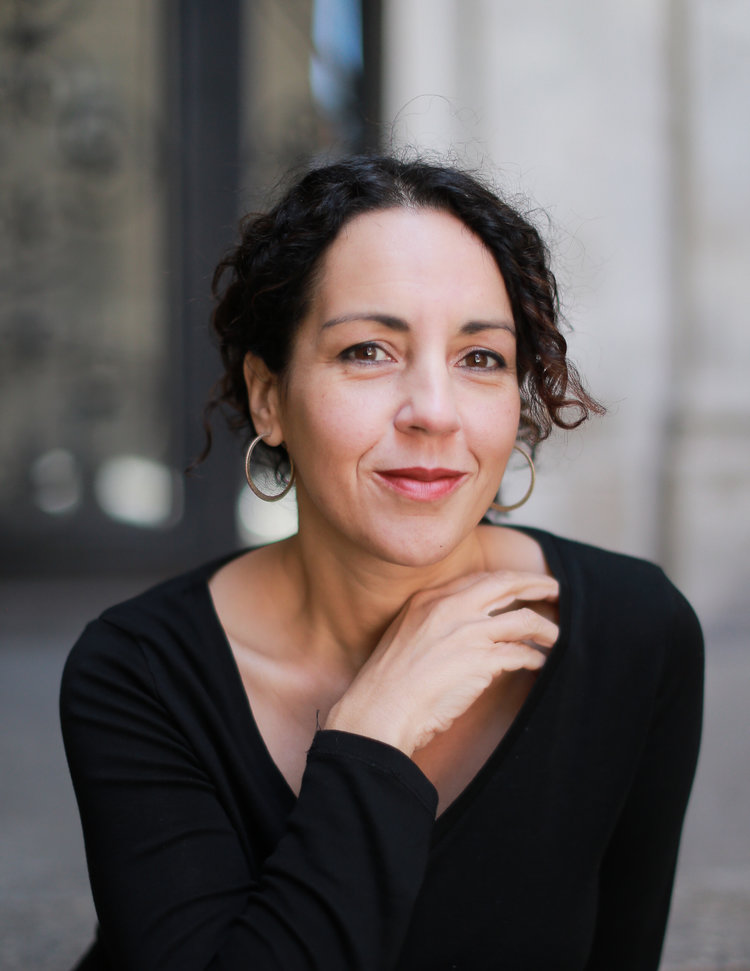
Besides being a well-lauded author for her first two novels, 2001’s Soledad and 2005’s Let It Rain Coffee, Angie Cruz has published in periodicals such as The New York Times, VQR, Gulf Coast, and The Paris Review, among others. Dominicana has received a well-earned abundance of praise. It was shortlisted for The Women’s Prize for Fiction in 2020. I had never heard about The Women’s Prize Trust until now, and I am intrigued and impressed at this UK registered charity that champions “women writers on a global stage.” (This year’s longlist has already been announced, and you can find it here.) Cruz is Associate professor at the University of Pittsburgh, where she teaches in the MFA program and has co-founded Aster(ix) the “transnational feminist literary arts journal committed to social justice and translation, placing women of color at the center of the conversation.” She splits her time living between NYC, Pittsburgh, and Turin.
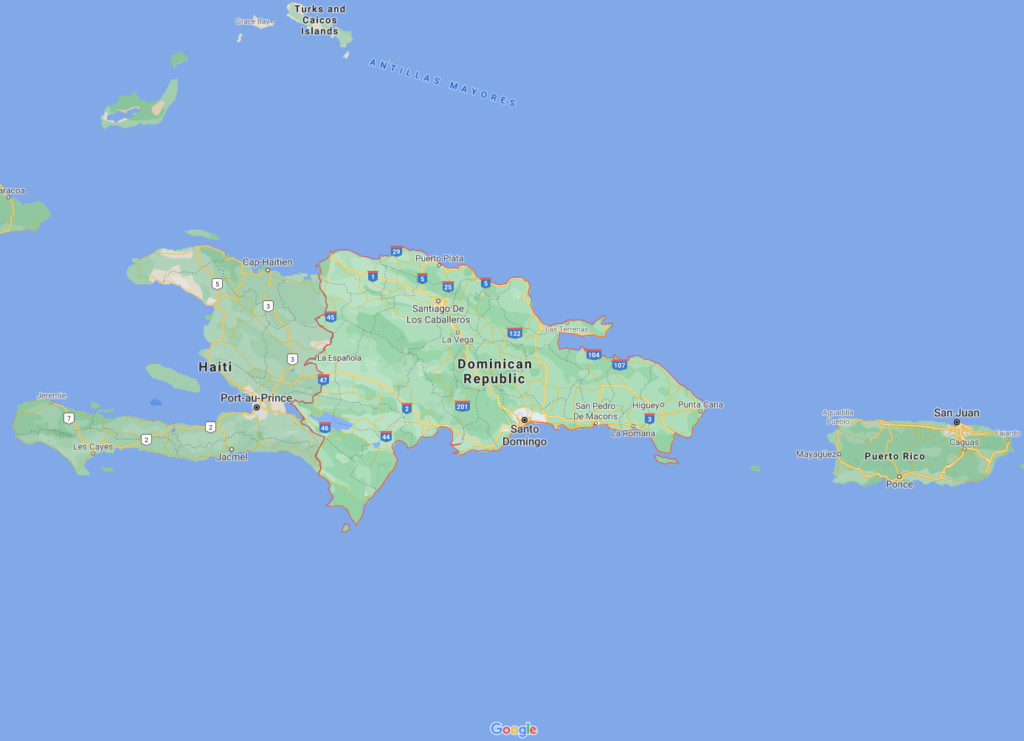
What I knew going into reading Dominicana was that it was an immigration story of a young woman from the Dominican Republic who moves to New York City, focusing on her marriage and the choices she has to make between love and familial duty. I thought that it was going to be a more modern story, set perhaps in the 1990’s, even though the setting of 1965 is literally in all of the marketing copy. (Eye Roll at myself.) Regardless of my lack of memory of the book’s setting, I didn’t know anything about the history of the Dominican Republic before I started reading this book, except that it is the Spanish-colonized and -speaking portion of the island of Hispaniola in the Caribbean, split with the country of Haiti. That’s where my knowledge began and ended, then after finishing the book I did a quick scan of the wikipedia page to broaden my knowledge and was amazed at how the year of 1965 was such a turning point in Dominican Republic history. Specifically about how 1965 was the DR’s last civil war that was ended by the United States military occupation. This civil war and US military occupation is oddly central to the plot of the story, it is why Ana’s husband, Juan, must return to the DR and leave her in the care of his brother, Cesar, in New York, but it seems so peripheral to the daily struggle of Ana, Juan, and their families in New York and the DR to make ends meet and provide a legacy of hope for their future, both in America and in the Caribbean.
What I loved about Ana’s story is that she’s this young girl brought to the metropolis of New York by her new husband with her parents’ blessing. Her intention before arriving in New York is that this opportunity will help her family by allowing her to petition for her parents and siblings to come to the United States in the future, but that it would allow her the freedom to finish her education, to learn English, and to contribute her own living for her New York family and to send money to her family in the DR. But, as soon as she arrives in the bachelor pad of Juan and Cesar, her intentions are put aside for the expectations and needs of her new husband. Juan wants Ana to not leave the house without him, nor to let anyone inside that he had not said to expect. She is limited in her ability to even cook food that tastes like home because Juan does the grocery shopping and expects her to lunch upon cans of Chef Boyardee. Once Juan and his controlling habits leave New York for a war-torn Dominican Republic, Ana, with the support of Cesar, is able to attend ESL classes at the local Catholic church and make traditional Dominican dishes to sell at Cesar’s work during their lunch break, creating more income they desperately need.
None of these things are spoilers, as it’s all more succinctly expressed in the marketing copy. So much more happens in this book, especially in Ana’s personal growth over the course of just ONE YEAR. I am giving this emotionally heavy and lyrically written book four stars. Cruz’s backlist is on my TBR and I can’t wait for her next release. Of note is her instagram account @dominicanasnyc which is “an insta-archive of Dominicanas in NYC 1950s-1990s.” Take a scroll through history with these women of New York.
What recent fiction book has added non-fiction knowledge to your repertoire like Dominicana has done for me?
~Ashley
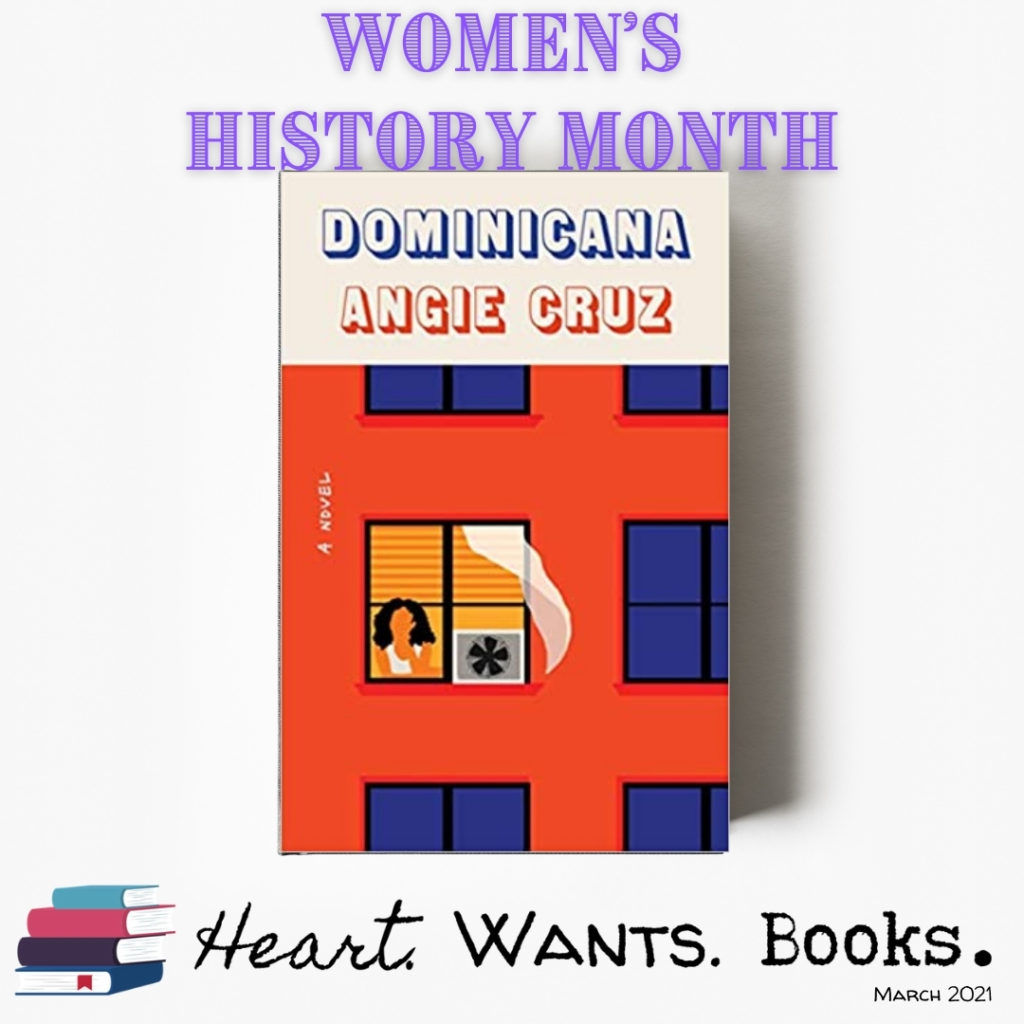
PLEASE SUPPORT US WHEN YOU SHOP BY FIRST CLICKING ON THE IMAGES BELOW:





